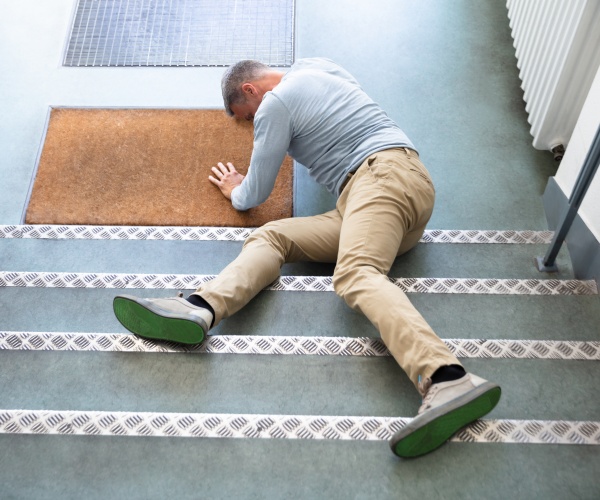Beware of medications that increase risk for dangerous falls

By Lynn Allison From Newsmax
According to the Centers for Disease Control and Prevention (CDC), about one in four adults age 65 and older falls each year in the U.S. That equates to about 36 million seniors falling, resulting in 32,000 deaths each year. Experts say that medications that cause drowsiness are the most common cause of falling in older people so it is important to check with your doctor to see if the drugs you are taking may increase your risk of a tumble.
“As the United States population continues to age, we can expect more deaths from falls,” said Robin Lee, an expert in injury prevention at the CDC. “We can also expect more hospitalizations and nursing home admissions as a result of falls.” Lee said that an estimated $50 billion was spent on medical care related to falls in 2015, but experts say they do not have to happen in the first place.
According to Harvard Health Publishing, many drugs can increase the risk of falling, and the more medications you take, the greater that risk becomes. Taking a medication that control hypertension is a common culprit for falls in older adults. If blood pressure drops too low, a person can become lightheaded upon standing, which can lead to a potentially dangerous fall.
According to Better Health While Aging, Dr. Leslie Kernisan says busy doctors don’t always warn patients of the potential risks of drugs, so “it’s important to identify medications that might be increasing fall risk and try to reduce or eliminate their use.” She noted that you should always consult with a physician before stopping or tapering off medication.
Medications that suppress the central nervous system are the most common culprits as they reduce alertness and cause slower reactions and movements.
Examples of drugs that can trigger a fall:
• Benzodiazepines. These drugs are prescribed for anxiety or as sleep aids. The brand names include Xanax, Valium, and Ativan. Kernisan said that this class of drugs has been associated with increased risk of falls, according to many clinical studies.
• Prescription sedatives. Sleep aids such as Lunesta, Sonata and Ambien can also trigger dizziness and falling.
• Sedating antihistamines, such as diphenhydramine (Benadryl), are part of a group of drugs called anticholinergics, which work by blocking a neurotransmitter called acetylcholine. These antihistamines often used in over-the-counter sleep aids such as Nyquil, Sominex, and Unisom, and combined sleep and pain medications like Tylenol PM, Motrin PM, Advil PM, and Aleve PM.
• Prescription overactive bladder medications such as Ditropan and Detrol increase your risk of falling, says Harvard Health Publishing.
• Antidepressants. Medications prescribed to treat depression and anxiety such as selective serotonin reuptake inhibitors (SSRIs), brand names Zoloft, Celexa, Prozac and Paxil, as well as tricyclic antidepressants like Elavil, can increase the risk of falling. According to the National Institutes of Health, virtually all antidepressants have been associated with a raised risk for falls.
• Narcotics and opioids, such as Vicodin which contains codeine and hydrocodone, Percodan, and Percocet, which both contain oxycodone, and Duragesic containing fentanyl, may also cause falls.
© 2022 NewsmaxHealth. All rights reserved.
For more on this story go to: NEWSMAX





